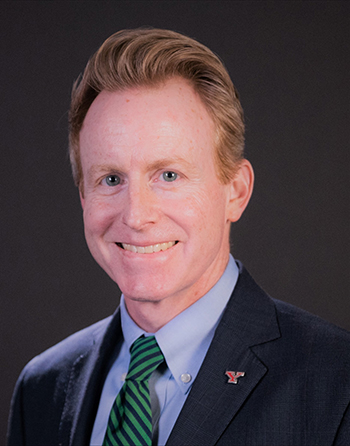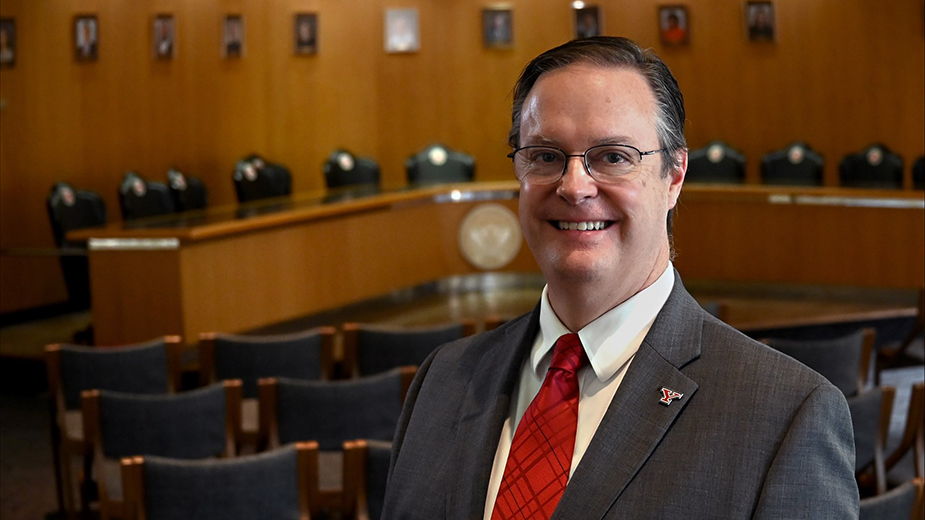By Brien N. Smith and Neal P. McNally
YOUNGSTOWN, Ohio – Much has been reported regarding Youngstown State University’s enrollment, academic offerings and budget. In this column, we provide context to help clarify actions being taken and why they are necessary for YSU’s long-term sustainability as an institution of opportunity that inspires individuals, enhances futures and enriches lives.
Program Review: Let’s start in 2018, when the Higher Learning Commission awarded YSU a 10-year re-accreditation. While HLC offered much praise, it required a comprehensive review of academic programs to ensure efficiency, effectiveness and alignment with YSU’s mission.
In response, more than a year ago, we launched an in-depth examination of our more than 140 academic programs – the first such review in decades. With the substantial participation of deans, department chairs, faculty and selected members of the Academic Senate, each program was assessed for alignment with mission, market and margin. Each was placed into one of five categories, ranging from Grow+ (significant growth potential) to Sunset (those facing enrollment challenges). Those assessments were shared with the campus last June and accepted by YSU trustees in September.

Enrollment/Budget: As the COVID-19 pandemic swept the globe, enrollment continued to sink, here at YSU and across much of higher education. Fall 2021 enrollment is down 11% from three years ago. Unfavorable regional demographic trends, a crowded and hyper-competitive college/university market and, to an extent, the uncertainty of COVID-19, have dragged down enrollment at regional universities nationwide. In fact, enrollment has fallen at nearly every public university in Ohio over the last six years.
This fiscal year, our revenue from tuition and fees is projected to drop by $5.6 million. It is only through millions in one-time COVID-19 relief funds that we are able to balance this year’s budget. Those temporary funds, however, cannot be relied upon moving forward. The result is a potential structural budget deficit in excess of $10 million next fiscal year.
Taking Charge: Faced with those budget challenges, and with the academic program review process in place, now is the time to take action to ensure a future for YSU that is both sustainable and prosperous.
In late October, with the support of the trustees, YSU decided to deactivate 26 academic programs identified as “sunset.” In all, 88 students – fewer than 1% of all YSU students – are enrolled those programs. Ten of the programs have no students at all. Three have just one student each. The programs will be phased out to enable all students to complete their programs. They are the only programs being deactivated; all of our other more than 100 academic programs remain.
Consequently, a handful of faculty layoffs will be implemented. An exact number is not available at the time this column is being written. It is important to remember that, about a year ago, the university took similar steps with non-faculty employees, laying off more than 40, furloughing hundreds of others and cutting administrator salaries by up to 15%.
These are not easy decisions; they have significant, personal impact. They are, however, necessary and not unlike actions taken at other universities facing similar challenges.
Cost-cutting is part of a larger strategy for a sustainable future. We will continue to make strategic investments, including hiring new faculty in Grow+ areas and expanding technologies to optimize student success.
We will continue to take a measured and deliberate approach toward incremental, tangible change as we look forward to an even brighter future filled with even greater successes.
Pictured at top: Brien N. Smith, YSU Provost and Vice President for Academic Affairs.
